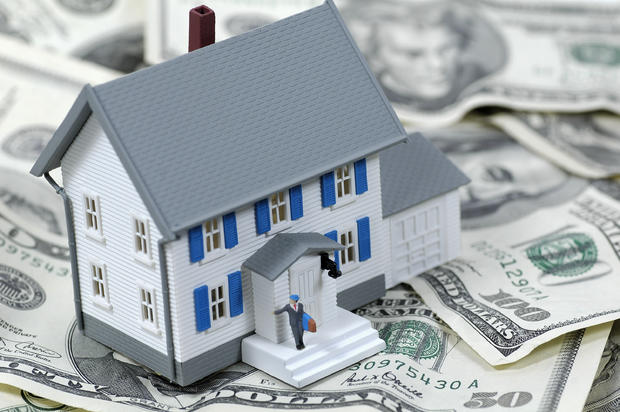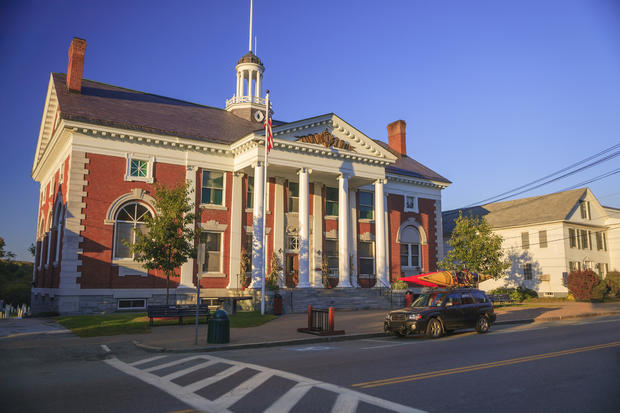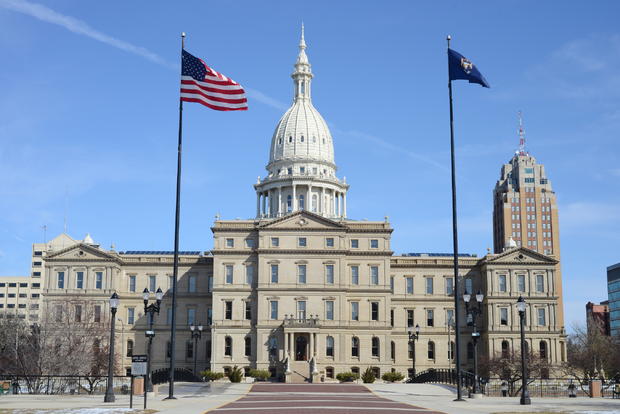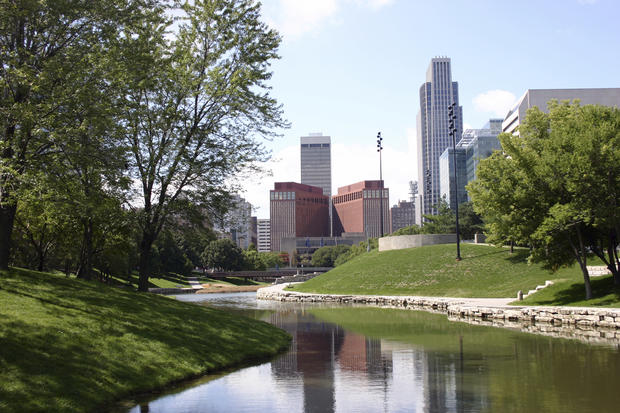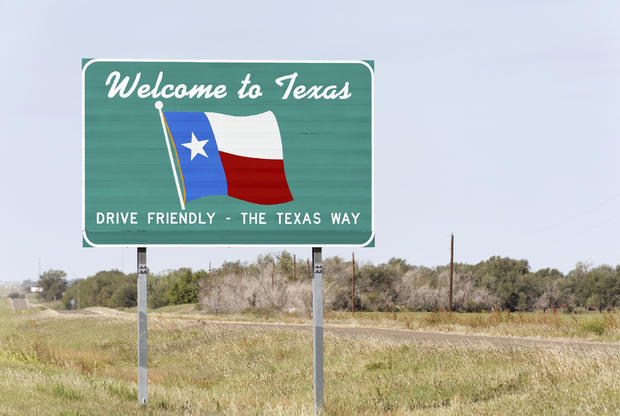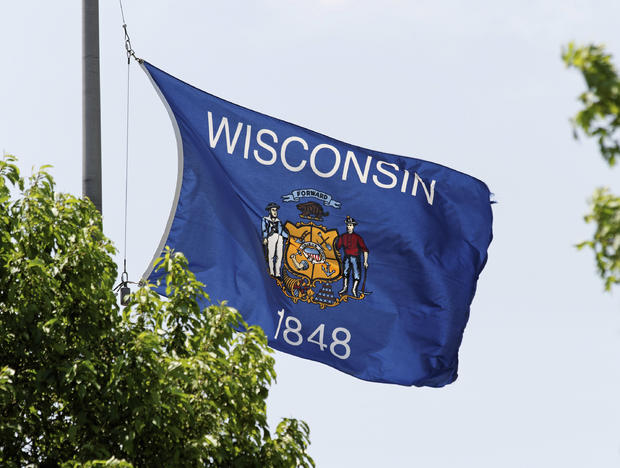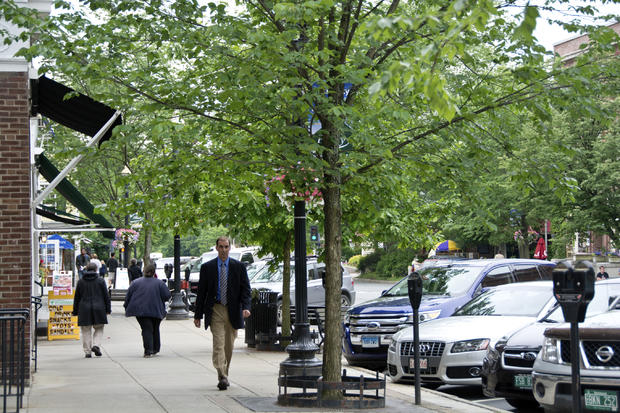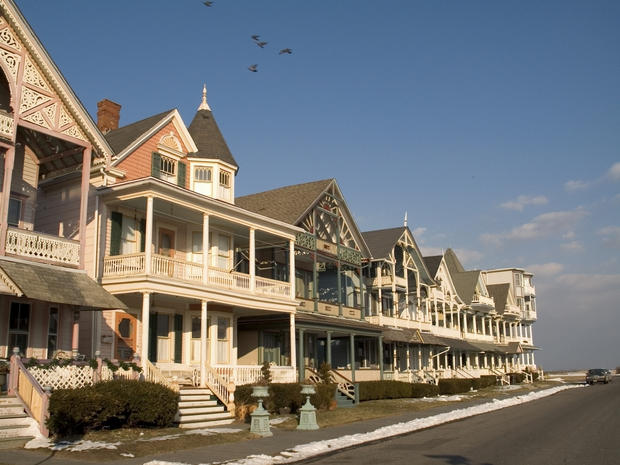The 9 states with the highest property taxes
Property taxes tend to be unpopular with Americans, but residents of several states have even more reason to grumble.
These nine states rank as carrying the highest property tax burdens for their residents out of all 50 U.S. states, according to a new study from WalletHub. Aside from the high tax bills, there's another common theme: Many of these states are located in the Northeast.
The average American household spends $2,089 on property taxes annually, with WalletHub noting that even renters end up footing the bill, given that the taxes are incorporated into their monthly rents. Homebuyers should investigate property taxes before they make a commitment to living in a particular municipality, especially since some towns and counties levy real estate taxes as well as states, WalletHub noted. About $15 billion worth of homes are foreclosed on each year because of property tax delinquencies, according to the National Consumer Law Center.
Some states offer relief through the homestead exemption, although some offer only relief for a portion of property tax, such as for school taxes. Critics point out that property taxes tend to impact poor and middle-class families harder than wealthier households because they're often regressive.
Property taxes are used by local governments to pay for schools, police and fire departments, local infrastructure, and other local amenities.
Read on to learn about the nine states with the heaviest property tax burdens.
9. Vermont: $2,934
Vermont households pay an average annual property tax of $2,934, according to WalletHub.
Property taxes have become a political hot button issue in the Green Mountain State, with many of the state's 630,000 residents angered by rapidly rising real estate taxes.
Governor Peter Shumlin, after narrowly winning the November election as the incumbent, vowed to make property tax reform one of his goals in his current term.
Vermont League of Cities and Towns executive director Steve Jeffrey told the Burlington Free Press that property taxes "just seemed to blot out all other issues" in the November election. According to the group's analysis, Vermont taxpayers saw their base residential education property tax rate rise 10 percent during the past two years, even though school enrollment in the state has been declining.
8. Michigan: $3,168
Residents in this midwestern state face average annual property tax bills of $3,168.
While that would be a significant bill for most Americans, residents of Michigan are faced with a double wallop: They have median annual household income of less than $47,500, or below the U.S. median income of $51,915 per year.
Governor Rick Snyder has reformed property taxes, but declining income and high taxes are eating away at the state's middle class, according to Watchdog.org.
Only 46.3 percent of the state's households ranked as part of the middle class in 2013, down from 51.3 percent in 2000, according to The Pew Charitable Trusts, which cited rising housing costs and lower income as a culprit.
7. Nebraska: $3,228
Residents of this midwestern state face average annual property taxes of $3,228 per household.
Its property tax burden has become a political issue, as in Vermont and Michigan. Nebraska lawmakers are debating a measure that would lower homeowners' collective tax bills by a collective $200 million annually, according to The Omaha World-Herald.
6. Connecticut: $3,301
Given that Connecticut residents face an annual property tax bill that's 58 percent higher that the country average, it's no surprise many feel they're paying too much.
Some state lawmakers are looking to reform how property taxes are handled, with one proposal looking at creating a revenue-sharing system between municipalities as well as a state-wide motor vehicle tax. The proposal is creating some debate within the state.
High property taxes are hampering the state's businesses, while also harming middle-class families and discouraging people from moving to or staying in the state, according to a report from the Property Tax Working Group of 1000 Friends of Connecticut.
5. Texas: $3,327
Everything's big in Texas, and that goes for property taxes as well.
Reform is on the mind of some lawmakers. One state senator has proposed shifting more of the tax burden from homeowners onto owners of big commercial properties.
Property taxes have been rising sharply, with the Texas Comptroller of Public Accounts noting that local property tax levies have almost tripled from 1992 to 2010, while the population grew by only 40 percent.
4. Wisconsin $3,398
This midwestern state has been hit hard with high property taxes and a shrinking middle class.
While almost 55 percent of the state's residents were middle-class in 2000, that share had shrunk to less than 49 percent by 2013, according to The Pew Charitable Trusts. Median income for a middle-class family has also taken a hit, with income dropping 15 percent to $51,467 during the same time period.
With the middle class increasingly squeezed, it's no wonder that property tax reform has become a focus in the state. The administration of Gov. Scott Walker, who has pledged to lower taxes every year he's in office, late last year noted that the state's taxes are "too high and too complicated."
3. New Hampshire $3,649
New Hampshire is often cited as a type of tax haven, thanks to its lack of state sales and income taxes.
But that's not the whole picture, given that the state's coffers are funded with higher-than-average property taxes. The high real estate taxes are increasingly a burden on middle-class taxpayers, given that their median incomes have dipped 6 percent since 2000, according to The Pew Charitable Trusts.
The state's high property taxes also unfairly hits middle and low-income homeowners or renters, while pushing some young families and retirees to move out of state in favor of states where property taxes take a smaller bite, the New Hampshire Business Review noted last month.
2. Illinois: $3,939
Middle-class homeowners are feeling the pinch in Illinois, thanks to high property taxes and shrinking incomes. The state's middle-class families saw their median income drop 12 percent to $56,210 from 2000 to 2013, according to The Pew Charitable Trusts.
That's prompting state officials to consider tax reform measures, with Gov. Bruce Rauner proposing a halt to local property tax increases unless voters approve, according to the Chicago Tribune.
"The system is rigged" against taxpayers and employers, Rauner said on a tour to promote his agenda.
1. New Jersey: $3,971
With average annual property taxes of $3,971, the Garden State is growing some big real estate tax bills.
No other state asks residents to pay as much in real estate taxes as New Jersey, which has prompted Gov. Chris Christie to sign legislation in 2010 that limited tax hikes to 2 percent annually.
But that's not enough to keep homeowners in the state. Last year, New Jersey had the most outbound moves out of any state in the country, according to United Van Lines' annual national movers study.
The pain isn't equally distributed across New Jersey, given that some towns have significantly higher bills than others. The small town of Tavistock, located in Camden County, had an average property tax bill of $25,346 last year. The average residential property value in that town is about $1.5 million.
Less affluent towns had lower property tax bills, such as Camden City in Camden County, where homeowners on average paid $1,485 in property tax last year.
